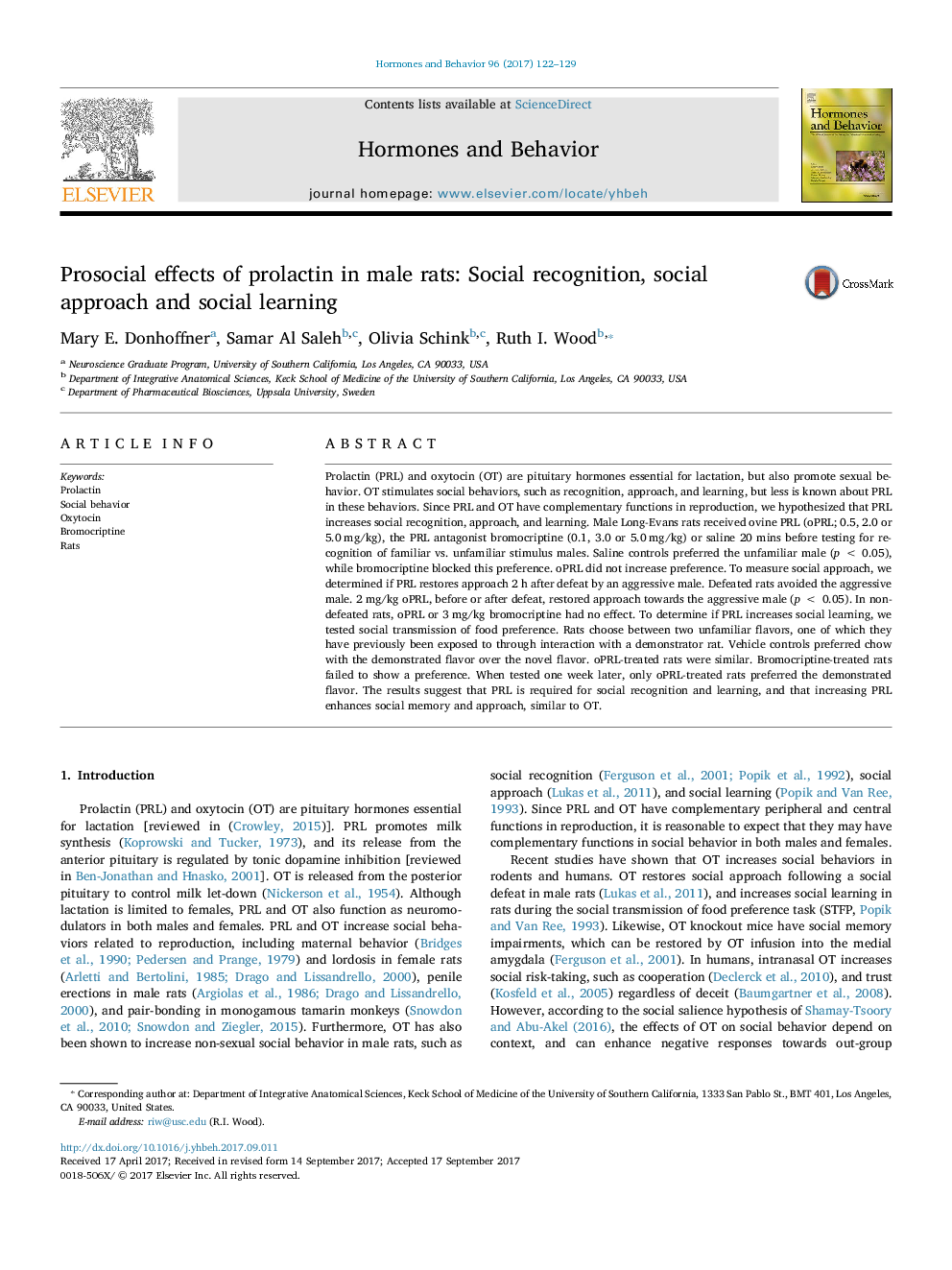ترجمه فارسی عنوان مقاله
اثرات جانبی پرولاکتین در موشهای صحرایی: شناخت اجتماعی، رویکرد اجتماعی و یادگیری اجتماعی
عنوان انگلیسی
Prosocial effects of prolactin in male rats: Social recognition, social approach and social learning
| کد مقاله | سال انتشار | تعداد صفحات مقاله انگلیسی |
|---|---|---|
| 113303 | 2017 | 8 صفحه PDF |
منبع

Publisher : Elsevier - Science Direct (الزویر - ساینس دایرکت)
Journal : Hormones and Behavior, Volume 96, November 2017, Pages 122-129
ترجمه کلمات کلیدی
پرولاکتین، رفتار اجتماعی، اکسی توسین، بروموکریپتین، موش
کلمات کلیدی انگلیسی
Prolactin; Social behavior; Oxytocin; Bromocriptine; Rats;

